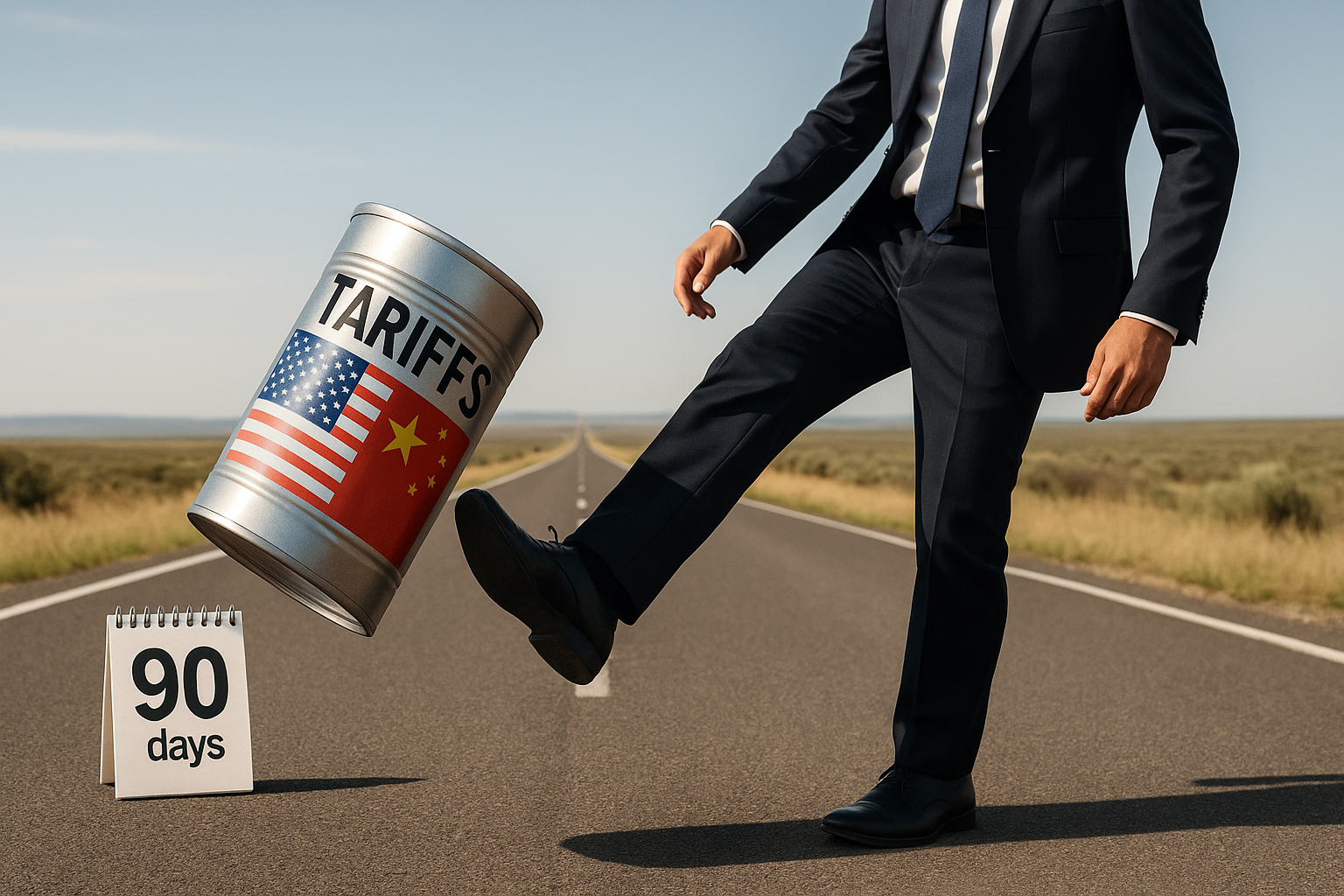The US-China tariff deadline dance continues, and—surprise, surprise—we're looking at another extension.
Commerce Secretary Howard Lutnick essentially spilled the beans on Fox News yesterday, saying it "feels likely" that the Tuesday deadline will be pushed back another 90 days. Not announced, mind you. Not confirmed. Just... suggested. Because heaven forbid anyone make a definitive statement in Washington these days.
I've been covering trade disputes since the Trump administration first started this tariff tango, and the choreography never changes. Create deadline. Build tension. Extend deadline. Repeat until everyone forgets what we were fighting about in the first place.
The current truce expires Tuesday. But deadlines in international diplomacy are about as firm as a wet noodle—more guidelines than actual rules, to borrow from Pirates of the Caribbean.
What's really fascinating to me isn't the extension itself (which markets had already priced in), but the weird communication strategy around it. Look at how this is playing out: Chinese officials claimed an agreement was reached in Stockholm. The White House stayed conspicuously silent. Then Lutnick goes on TV to basically pre-announce what everyone suspected anyway.
It's like watching teenagers pass notes in class, except the note is about billions in international trade.
"This will be up to the trade team and to the president," Lutnick carefully added—classic bureaucratic self-preservation. If the extension happens, he looks in-the-know. If it doesn't, well, he never actually promised anything, did he?
These artificial deadlines serve a purpose, though. They create pressure points for negotiation without anyone having to admit they actually want to talk. ("We had to meet; the deadline was coming up!") They give structure to diplomatic relationships that might otherwise drift. And they generate predictable market movements that savvy investors can ride like clockwork.
The 90-day timeframe itself? Perfect bureaucratic middle ground—long enough to seem meaningful, short enough to maintain urgency.
The real victims here are businesses caught in the middle. Try planning inventory or supply chains when you're constantly warned that tariffs might jump 25% any day now... or maybe not... we'll let you know in three months... or maybe another three after that.
(Having spoken with manufacturing executives about this very issue, I can confirm the collective eye-rolling is almost audible.)
The economic drag of this uncertainty is substantial but hard to quantify—it's like driving with one foot on the brake. You're still moving forward, just... inefficiently.
So what happens next? Markets will shrug because they've seen this movie before. Both sides will claim they're holding firm on principles while simultaneously avoiding any actual confrontation. And in about 89 days, we'll start hearing rumors about the next extension.
The tariff can gets kicked down the road again. And the band plays on.




